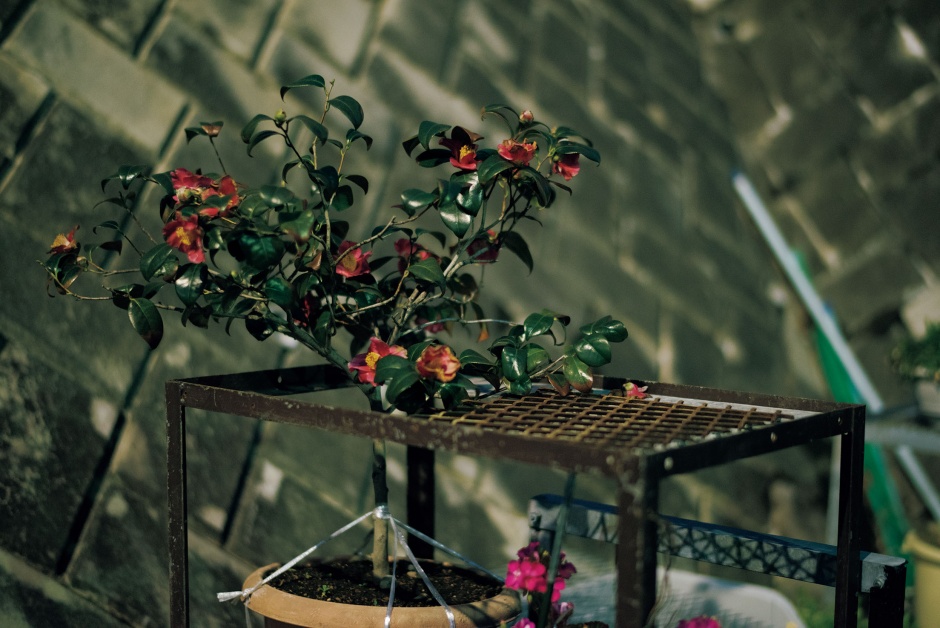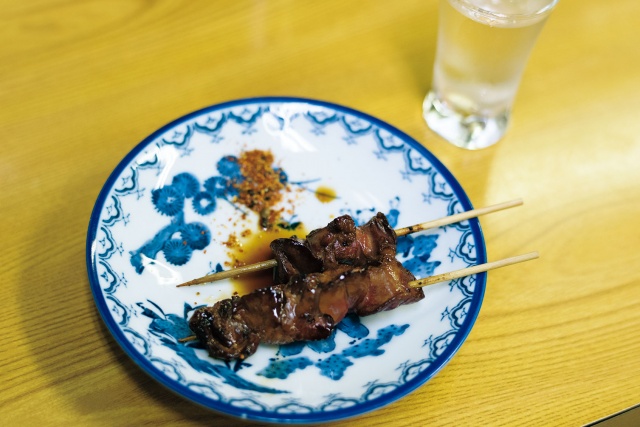vol.
012
MARCH
2016
vol.012 / Dear Tokyo
A Tokyo story in three generations
Text:Shiraku Tatekawa × Photograph:Satomi Tomita

I may have been born and raised in Tokyo, but I’m no proper “true Tokyoite.” I grew up in the Umegaoka area of Setagaya, and I live in Nerima now. My grandpa on my dad’s side, though, a bona fide Tokyoite of the first order. He was an acupuncturist. I shouldn’t say he was a acupuncturist, actually. He was Isaburo Fukaya — the “god of accupuncture,” as some people still call him. Every acupuncturist I meet practically genuflects when they talk to me, knowing that I’m in the bloodline. Some of them even tell me that I should call rakugo quits and take up acupuncture instead. They look serious about it, too. My dad’s got that side of things covered, I suppose — he tries to popularize my grandpa’s writings when he’s not busy with work.
My dad, Hideo Shinma, is another genuine Tokyoite, through and through, but he’s a classical guitarist — one of the “five great Japanese guitarists.” I’ve been around true Tokyoites ever since I was a little kid, I guess. My grandpa was one of those classic Tokyoites you’d find in a rakugo story, never one to hold anything back or mince any words. When I was a baby, my grandpa would go on walks with me in his arms. If he saw another baby around the neighborhood, he’d let loose with something rash. “Not much to look at, that kid of yours there. Got nothin’ on my grandson. Might as well pinch that little thing out,” he’d say, without ever giving it much of a second thought.
As you’d probably expect from a musician, my dad’s more of a quiet type — the epitome of the nice, sophisticated, young gentleman that shows up in rakugo stories. He sticks to his own likes and tastes. Never does anything he’s not into. My mom was born in Hamamatsu, Shizuoka, and grew up as the baby of a rich family where matriarchy has always been the name of the game. When my mom and dad got married, her family took him in as a kind of adopted son. I remember going to Hamamatsu for family gatherings and seeing my dad’s in-laws put on their aprons and do all the cleaning while my dad just sat on the sofa, smoking his pipe, never lifting a finger.
When I go back through my memories of my dad and my grandpa, I can see it — what they were is exactly what I am now. To me, they’re Tokyo. My grandpa had his practice in the Honmachi area of Shibuya. It might not technically fall into the shitamachi category, but Honmachi had all the trappings: a bustling shopping street that resonated with a real, intimate human warmth, an ominous-looking hospital that you felt might make you sick as soon as you stepped inside, public baths galore. Back then, Umegaoka wasn’t the upscale neighborhood it is now — there were clusters of row houses populating the area, rag-and-bone men roaming the streets, and vegetable gardens dotting the townscape. Everywhere you looked, there was someone living there. I moved to a hipper area once, but I couldn’t take it.
I live in Nerima now. Although it can be a little inconvenient, it might be the best place for me to find that warm-hearted soul of Tokyo.

Editing: Nanae Mizushima
Translation: Office Miyazaki, Inc.



